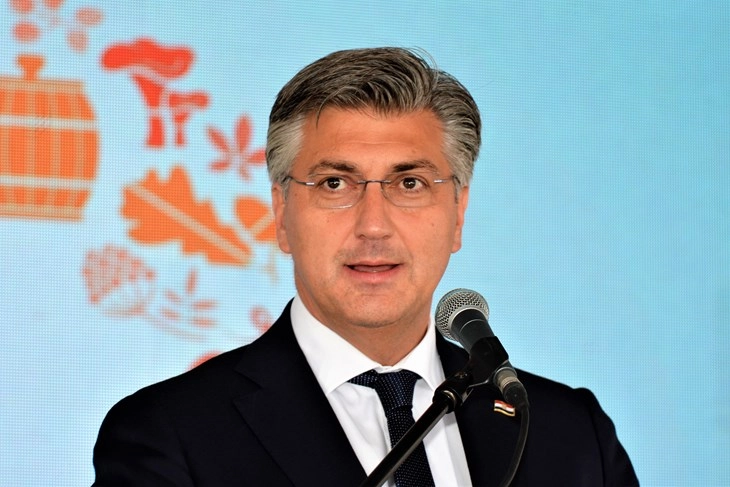Croatian PM: Croatia wants stable and functional neighbors
- Post By Magdalena Reed
- 16:47, 6 October, 2021

Zagreb, 6 October 2021 (Hina/MIA) — Croatia has been recognized as an advocate for EU enlargement, and it is in our interest to have stable and functional neighbors, Prime Minister Andrej Plenković said after the EU–Western Balkans summit in Slovenia on Wednesday.
After the summit, Plenković told reporters it was in the interest of the youngest EU member state that its neighboring countries are stable, functional, that they develop economically and that the social atmosphere is as good as possible.
The declaration adopted at the summit states that "the EU reaffirms its unequivocal support for the European perspective of the Western Balkans" and that it "reconfirms its commitment to the enlargement process."
Plenković stressed that the word 'enlargement' was mentioned for the first time in this declaration because it used to be taboo for some member countries.
He pointed out that Croatia had been committed to a reform of the election legislation in Bosnia and Herzegovina and reaching a consensus of all key political parties, institutions and stakeholders in Bosnia and Herzegovina.
Of course, in a way that would ensure legitimate representation of all constituent peoples in the highest bodies of Bosnia and Herzegovina, the Croatian prime minister said.
EU and Southeast European leaders discussed the Union's stronger engagement in the region's economic recovery and sustainable development, strengthening political dialogue, regional and security cooperation, and emphasis was on the European perspective of those countries.
Some EU member states, including Croatia, Slovenia and Austria, warn that due to the EU's insufficient concern, Southeast Europe could fall under the influence of Russia and China, while the other group, led by France, is generally for enlargement but without the ambition to step up the process.
The Croatian PM also asked Serbia's president Aleksandar Vučić to address the issue of Serbian grammar books that negate the existence of the Croatian language.
After their talks on the margins of the EU–Western Balkans summit in the Slovenian mountainous resort of Brdo pri Kranju, Plenković told the press he had demanded Vučić solve the issue of the textbooks that practically denied the Croatian language.
The Croatian premier explained that he had underscored that the issue must be corrected, while Vučić responded that "he would see what he could do."
On Tuesday, Plenković said that Serbian textbooks' denial of the Croatian language was outrageous and unacceptable.
"The embassy, the foreign ministry and all the relevant institutions have a clear duty to send protest notes to Serbia," Plenković told the press after he met junior partners in the ruling coalition in Zagreb.
According to the local Croat-language weekly "Hrvatska riječ" in Vojvodina, a grammar book for eighth-graders by a group of authors says that the Serbian, Slovenian, Macedonian and Bulgarian languages are South Slavic languages while "Croats, Bosniaks and some Montenegrins call the Serbian language Croatian, Bosnian, Bosniak or Montenegrin."
The textbook was approved by the Serbian Institute for the Promotion of Education.
During today's meeting, the two officials also discussed the matter of persons who had gone missing during Croatia's Homeland War.
"We have provided Belgrade with some data (about the disappeared people Croatia is searching for), and we expect Serbia to give some information accordingly, so as to see whether anything of that can be considered reliable," Plenković said.







